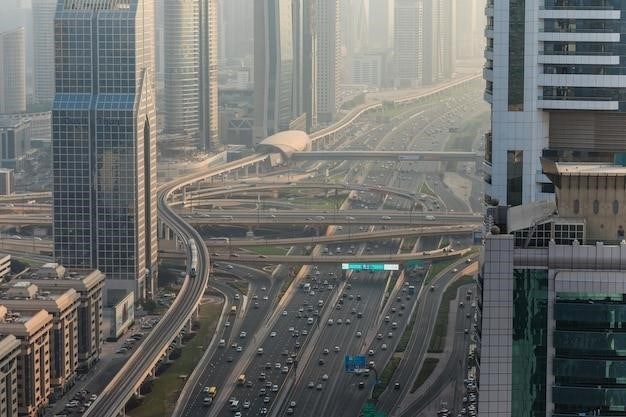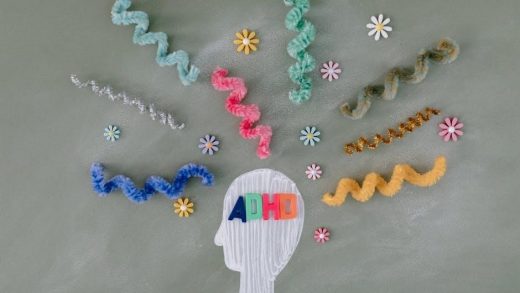The Dubai Leaks⁚ Unveiling Hidden Property Holdings
The Dubai Leaks, a massive data breach exposing the ownership of over 800,000 properties in Dubai, has shed light on a hidden network of foreign investors, including politicians, sanctioned individuals, and criminal suspects. This investigation, conducted by 75 international media outlets and coordinated by the Organised Crime and Corruption Reporting Project (OCCRP), unveiled the extent to which Dubai has become a haven for illicit wealth.
A Global Investigation
The Dubai Leaks investigation, dubbed “Dubai Unlocked,” is a testament to the collaborative power of international journalism. Over 75 media outlets from 58 countries, coordinated by the Organised Crime and Corruption Reporting Project (OCCRP), pooled their resources and expertise to delve into the leaked data; This global collaboration allowed for a comprehensive analysis of the property records, revealing a complex web of ownership spanning continents and involving individuals from diverse backgrounds. The sheer scale of the investigation, involving journalists from across the globe, highlights the international significance of the Dubai Leaks and the need for transparency in global real estate markets.
The Scope of the Leaks
The Dubai Leaks encompass an astonishing volume of data, revealing the ownership of over 800,000 properties in Dubai. These records, largely from 2022 and 2020, build upon earlier leaks from 2016 and 2020, providing a comprehensive snapshot of the city’s real estate market. The data originated from multiple sources, including the Dubai Land Department and publicly owned utility companies. The leaks contain detailed information about individual properties, including their location, size, and ownership details. This extensive dataset allowed investigators to identify and track the flow of money into Dubai real estate, uncovering a wide range of individuals and entities involved in the market.
Key Findings
The Dubai Leaks revealed a complex network of property ownership that extended beyond the realm of legitimate investment. Among the key findings were the identification of numerous politically exposed persons (PEPs), including politicians and military officials, who held significant stakes in Dubai real estate. The leaks also uncovered substantial investments by sanctioned individuals and criminal suspects, highlighting Dubai’s role as a potential haven for illicit funds. Notably, the investigation discovered a substantial presence of Pakistani nationals in Dubai’s real estate market, with data indicating that Pakistani citizens hold properties worth approximately 11 billion in the city.
Politicians and Officials
The Dubai Leaks revealed a concerning trend of politically exposed persons (PEPs) owning properties in Dubai. The leaks identified several high-profile individuals, including politicians, military officials, and businessmen, who held significant investments in the city’s real estate market. The presence of such individuals raises concerns about potential corruption and money laundering, as PEPs are often associated with high-risk financial transactions. The leaked data highlighted the need for increased scrutiny of property ownership in Dubai, particularly when it involves individuals with political connections.
Sanctioned Individuals and Criminal Suspects
The Dubai Leaks exposed a concerning network of sanctioned individuals and criminal suspects who have invested in Dubai’s real estate market. The leaked data revealed that individuals facing international sanctions for alleged involvement in human rights abuses, corruption, and other criminal activities owned properties in Dubai. This raises serious questions about the emirate’s commitment to upholding international sanctions and its role as a haven for individuals seeking to conceal their illicit wealth. The leaks highlighted the need for greater transparency and due diligence in Dubai’s real estate sector to prevent the flow of dirty money.
Pakistani Holdings
The Dubai Leaks revealed that Pakistani nationals hold a significant presence in Dubai’s real estate market, owning an estimated 11 billion worth of properties. The leaked data identified prominent Pakistani figures, including politicians, former military officials, and businessmen, among the owners of luxury real estate in Dubai. The investigation highlighted the substantial investments made by Pakistani individuals in Dubai, raising questions about the source of these funds and their potential connection to corruption and illicit activities. The revelation of Pakistani holdings in Dubai has sparked discussions about transparency and accountability within the country’s financial system.
The Impact of the Leaks
The Dubai Leaks have had a significant impact on various levels, exposing the vulnerabilities of Dubai’s real estate market and prompting calls for increased transparency and accountability. The revelation of illicit activities and the involvement of high-profile individuals has shaken confidence in Dubai as a safe haven for investors. The leaks have also raised concerns about the potential for money laundering and the use of Dubai’s real estate market for criminal activities. The international implications of the leaks are significant, as they highlight the challenges faced by global regulators in combating financial crime and ensuring transparency in cross-border transactions. The leaks have sparked a debate about the role of Dubai in the global financial system and its commitment to combating corruption and illicit activities.
Transparency and Accountability
The Dubai Leaks have ignited a demand for increased transparency and accountability in the emirate’s real estate sector. The exposure of individuals involved in illicit activities and the scale of opaque transactions has highlighted the need for stricter regulations and oversight mechanisms. Calls for greater transparency in property ownership records and the implementation of robust Know Your Customer (KYC) procedures have become louder. The leaks have also raised questions about the effectiveness of existing anti-money laundering (AML) measures and the need for greater cooperation between international authorities to combat financial crime. The Dubai government has responded to the leaks by announcing plans to enhance transparency and improve regulatory frameworks, but critics argue that these measures need to be more comprehensive and effectively implemented to address the underlying issues.
Implications for Dubai’s Real Estate Market
The Dubai Leaks have cast a shadow over the emirate’s once-booming real estate market. The revelations of widespread illicit activities and the involvement of high-profile individuals in opaque transactions have raised concerns about the integrity and transparency of the market. Potential investors may become more hesitant to invest in Dubai due to concerns about the risks associated with money laundering and other financial crimes. The leaks could also lead to increased scrutiny from international financial institutions and regulatory bodies, potentially impacting the flow of capital into the emirate. However, Dubai’s government has asserted its commitment to addressing the issues raised by the leaks and ensuring the long-term stability and attractiveness of its real estate market. The ultimate impact of the leaks on Dubai’s real estate market remains to be seen, but it is likely to face increased scrutiny and a heightened focus on transparency and accountability.
International Implications
The Dubai Leaks have far-reaching implications beyond Dubai’s borders, highlighting the global nature of illicit financial flows and the challenges faced by international authorities in combating money laundering and other financial crimes. The revelations have put pressure on international financial institutions and governments to step up their efforts to combat financial crime and increase transparency in global real estate markets. The leaks could also lead to increased scrutiny of other financial centers and jurisdictions that have been perceived as havens for illicit wealth. The international community is grappling with how to effectively regulate and monitor cross-border financial transactions and real estate investments to prevent the exploitation of loopholes and ensure a level playing field. The Dubai Leaks serve as a stark reminder of the need for greater international cooperation and collaboration to address the global challenge of financial crime.
The Future of Dubai’s Real Estate Market
The Dubai Leaks have cast a shadow over Dubai’s real estate market, raising questions about its future trajectory. The revelations have sparked increased scrutiny from international authorities and investors, potentially impacting future investment flows. The Dubai government may face pressure to implement reforms to enhance transparency and accountability in the real estate sector, including stricter due diligence requirements for buyers and more robust mechanisms to identify and investigate suspicious transactions. The use of technology, such as blockchain and artificial intelligence, could play a significant role in bolstering transparency and combating illicit activities in the market. The future of Dubai’s real estate market will likely depend on how effectively the government addresses these challenges and builds trust among investors.
Increased Scrutiny
The Dubai Leaks have triggered heightened scrutiny from international authorities and financial institutions. Global regulators are likely to intensify their monitoring of Dubai’s real estate market, seeking to identify and address potential vulnerabilities. The revelations have raised concerns about the effectiveness of Dubai’s existing anti-money laundering and counter-terrorism financing measures, prompting calls for greater transparency and stricter enforcement. International investors, particularly those from countries with stringent anti-corruption regulations, may become more hesitant to invest in Dubai, fearing potential reputational risks associated with the leaked data. This increased scrutiny could lead to a decline in investment in the market, especially from high-risk sectors.
Potential for Reform
The Dubai Leaks have presented an opportunity for Dubai to address concerns about its real estate market and enhance its reputation as a global financial hub. The revelations have spurred calls for comprehensive reforms to strengthen transparency, improve regulatory oversight, and deter illicit financial flows. Dubai authorities could consider implementing stricter due diligence procedures for property transactions, requiring more thorough documentation and verification of the source of funds. Moreover, strengthening cooperation with international law enforcement agencies and sharing information to facilitate investigations into suspected financial crimes could be crucial. By proactively addressing these issues, Dubai can demonstrate its commitment to combating financial crime and ensuring the integrity of its real estate market.
The Role of Technology
The Dubai Leaks highlight the crucial role technology plays in exposing financial wrongdoing and promoting transparency. The leak itself underscores the vulnerability of even heavily regulated sectors like Dubai’s real estate market to data breaches. Moving forward, leveraging technology to enhance transparency and accountability within Dubai’s real estate sector is vital. This could include implementing robust data security measures, adopting blockchain technology to track property ownership records, and utilizing AI-powered tools to identify suspicious transactions. Furthermore, fostering a culture of data privacy and responsible data sharing within the industry is crucial. By embracing technological advancements, Dubai can create a more secure and transparent real estate environment.

Key Players
The Dubai Leaks involved a collaborative effort between numerous key players, including the Organised Crime and Corruption Reporting Project (OCCRP) and a network of 75 international media outlets.
Organised Crime and Corruption Reporting Project (OCCRP)
The Organised Crime and Corruption Reporting Project (OCCRP) is an international non-profit investigative journalism organization based in Washington, D.C. The OCCRP played a crucial role in coordinating the Dubai Leaks investigation, bringing together journalists from 75 media outlets across the globe. The OCCRP’s expertise in cross-border investigations and its network of experienced reporters made it instrumental in uncovering the intricate web of property ownership in Dubai. The organization’s commitment to exposing corruption and financial crimes has contributed significantly to the global understanding of Dubai’s real estate market and its vulnerability to illicit activities.
International Media Outlets
The Dubai Leaks investigation was a collaborative effort involving a vast network of international media outlets. Over 75 news organizations from 58 countries participated in this groundbreaking project, showcasing the global reach and impact of the findings. Prominent publications such as The Guardian, Le Monde, Süddeutsche Zeitung, and the Organized Crime and Corruption Reporting Project (OCCRP) were among the key players in this collaborative effort. Their combined resources and investigative expertise allowed them to delve into the intricacies of Dubai’s property market and expose the hidden connections between individuals and entities across borders. The participation of such a diverse range of media outlets ensured that the Dubai Leaks story reached a wide audience, raising awareness about the potential for abuse within the real estate sector and prompting a critical examination of Dubai’s role in the global financial system.
Dubai Land Department
The Dubai Land Department (DLD) plays a pivotal role in the Dubai Leaks investigation. As the primary regulatory body responsible for overseeing real estate transactions in Dubai, the DLD holds a vast trove of data related to property ownership and transactions. The leaks originated from the DLD, exposing sensitive information about property ownership, including the names of individuals and entities who hold real estate in Dubai. The DLD’s involvement in the leaks has raised questions about the security of its data systems and the effectiveness of its measures to prevent unauthorized access. The investigation highlights the importance of robust data security protocols within government institutions, particularly those handling sensitive financial and personal information. The DLD’s response to the leaks, including any steps taken to address the security vulnerabilities identified, will be closely scrutinized.
The Dubai Leaks⁚ A Catalyst for Change?
The Dubai Leaks have sparked a global conversation about transparency, accountability, and the role of Dubai as a global financial hub. The revelations have exposed the vulnerability of Dubai’s real estate market to illicit finance and raised concerns about the emirate’s commitment to combating money laundering and corruption. While the impact of the leaks is still unfolding, they have already prompted calls for increased scrutiny of Dubai’s real estate sector, with potential implications for the future of the market. The leaks may also lead to reforms aimed at strengthening regulatory frameworks and enhancing transparency. The Dubai Leaks serve as a reminder of the critical need for robust anti-money laundering and anti-corruption measures in a globalized world, where illicit financial flows pose a significant threat to financial stability and national security. The question remains whether these revelations will serve as a catalyst for meaningful change in Dubai and beyond.


